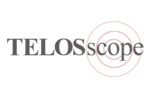By Renaud Girard · Thursday, August 12, 2021 The following essay was published in Le Figaro on August 9, 2021, and appears here in translation with the permission of the author. Translated by Russell A. Berman, with comments here.
On Sunday, August 8, 2021, the Afghan Taliban took three provincial capitals, including Kunduz, the large city in the north of Afghanistan, close to the frontier with Tajikistan on the road that leads from Kabul to Dushanbe. Kunduz was previously the general quarter of the German forces intervening within the NATO framework. [First Quartermaster General Erich] Ludendorff once called August 8, 1918, a “day of mourning for the German army.” August 8, 2021, will certainly remain a “day of mourning” for the Afghan army that the Americans have been training and equipping for twenty years. As panic feeds panic, and debacle leads to debacle, one cannot see how the Afghan army will be able to prevent the imminent fall of Kandahar, Mezar, Herat, and Jalalabad, before facing definitive defeat at Kabul.
Continue reading →
By Telos Press · Thursday, August 5, 2021 In today’s episode of the Telos Press Podcast, David Pan talks with Matthias Schwartz about his article “Servants of the People: Populism, Nationalism, State-Building, and Virtual Reality in Contemporary Ukraine” from Telos 195 (Summer 2021). An excerpt of the article appears here. In their conversation they talked about the history of the Euromaidan and how it contributed to nationalism in Ukraine; the election of President Volodymyr Zelensky, who previously portrayed the president of Ukraine in the hit TV show Servant of the People; the way that Zelensky’s presidency undercut the nationalist form of politics by decoupling nationalism from populism; and the changes that Zelensky has (or has not) brought to Ukrainian politics. If your university has an online subscription to Telos, you can read the full article at the Telos Online website. For non-subscribers, learn how your university can begin a subscription to Telos at our library recommendation page. Print copies of Telos 195 are available for purchase in our online store.
Listen to the podcast here.
Continue reading →
By Klaus Boldt · Monday, April 12, 2021 
The following interview appeared in the Welt am Sonntag. This translation is published here with permission. Wolfgang Reitzle is one of Germany’s leading business executives. Translated by Russell A. Berman, with comments here.
Welt am Sonntag: Mr. Reitzle, the corona crisis robbed many Germans of their illusions about this republic. They don’t recognize their country anymore. They used to think of it as progressive, organized, digitalized, and well led. Was that image of modern Germany just a fantasy?
Wolfgang Reitzle: There have been plenty of signs of a discrepancy in Germany between appearance and reality: despite a defense budget of 47 billion euros, our guns can’t shoot, our tanks can’t roll, and our airplanes can’t fly—this doesn’t seem to bother anyone here, but other countries have taken notice. Our inability to build an airport for our capital city astonished the world.
Continue reading →
By Russell A. Berman · Monday, April 12, 2021 Wolfgang Reitzle is one of Germany’s premiere business executives, and Klaus Boldt, part of the editorial leadership of Die Welt, one of the foremost business journalists. The wide-ranging interview here points to the multiple dimensions of the problems facing Germany at the end of the Angela Merkel era. The general elections in late September are sure to lead to a new coalition government in Berlin—and a new chancellor—who will face all the problems that Reitzle diagnoses, with the possible exception of the pandemic, hopefully over by the fall, even in Europe. While the coronavirus’s economic, social, and political consequences are however sure to linger on, it figures here primarily as an example of massive government failure and the toxic mixture of bureaucracy, ideology, and incompetence that Reitzle denounces and that leads him to call Berlin “a failed state.”
Those are harsh words from a prominent leader of the German business community, especially when one recalls how in the U.S. political discussion in recent years Germany has been repeatedly held up as the better alternative to the Trump administration. Not long ago the myth of Angela Merkel as the new leader of the free world circulated through the press. That once-glowing imagery has now vanished in the face of the catastrophes of the German and the EU corona response, and the prospect of continued slow economic growth, fraying infrastructure, and insufficient support for technological innovation in the country where one would least expect it. Reitzle helps us understand why.
Continue reading →
By Telos Press · Thursday, April 8, 2021  On The Caravan Podcast at the Hoover Institution, Russell Berman talks with political scientist Matthias Küntzel about the potential return of the United States to the Iran Deal, Germany’s long-standing special relationship with Iran, anti-Americanism in Europe, and the anti-Semitism of the Iranian regime. Listen to the podcast here. Küntzel is the author of Germany and Iran: From the Aryan Axis to the Nuclear Threshold (Telos Press, 2014), which examines why the history of the special relationship between Germany and Iran is critical to understanding the ongoing controversy over Iran’s nuclear program. Both Germany and Iran and Küntzel’s earlier book Jihad and Jew-Hatred: Islamism, Nazism, and the Roots of 9/11 are available in our online store for 25% off the list price. Küntzel’s articles for Telos are also available at our online archive. On The Caravan Podcast at the Hoover Institution, Russell Berman talks with political scientist Matthias Küntzel about the potential return of the United States to the Iran Deal, Germany’s long-standing special relationship with Iran, anti-Americanism in Europe, and the anti-Semitism of the Iranian regime. Listen to the podcast here. Küntzel is the author of Germany and Iran: From the Aryan Axis to the Nuclear Threshold (Telos Press, 2014), which examines why the history of the special relationship between Germany and Iran is critical to understanding the ongoing controversy over Iran’s nuclear program. Both Germany and Iran and Küntzel’s earlier book Jihad and Jew-Hatred: Islamism, Nazism, and the Roots of 9/11 are available in our online store for 25% off the list price. Küntzel’s articles for Telos are also available at our online archive.
Continue reading →
By Russell A. Berman · Monday, February 8, 2021 Matthias Küntzel is a German political scientist with a focus on the Middle East. He provides astute analyses of the German and more broadly the European role in responding to the challenges posed by the Iranian regime; two of his books are available in English from Telos Press. His current piece, published here, sheds important light on the challenge of the moment: the Biden administration’s vocal commitment to returning to the JCPOA—a long-standing position during the presidential campaign—but facing continued intransigence from Tehran, willing to accelerate its nuclear program, indeed all the more so in the wake of the Biden election. Once it became clear that Trump and Pompeo were on their way out and that the incoming administration, which had been advertising its support for the Obama-era deal, would take over, Tehran became more, not less, aggressive on the nuclear front. It is presumably calculating that increased pressure will lead Washington to buckle by lifting sanctions first, in a way that would certainly not have succeeded with the previous administration. That makes the moment all the more fragile and fraught. Küntzel leads us through this maze.
Continue reading →
|
|









